New York City's Foie Gras Ban Is On Hold—For Now
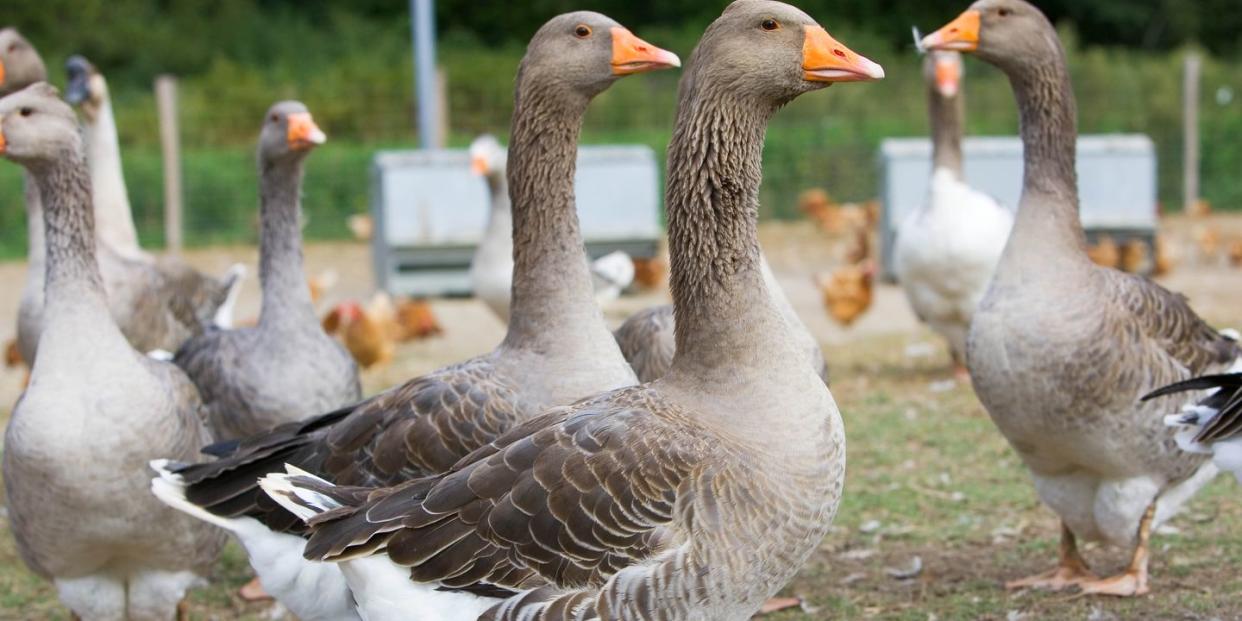
"Hearst Magazines and Yahoo may earn commission or revenue on some items through the links below."
The New York City Council passed a law banning the sale of foie gras back in 2019. It was slated to go into effect November 25, but now, it's on hold.
New York Supreme Court Justice J. Machelle Sweeting issued a temporary injunction in September in response to a lawsuit that two upstate farms filed against the City of New York in late May. The injunction means that the sale of foie gras can continue while the case plays out in court.
La Belle Farm and Hudson Valley Foie Gras argue that they will have to terminate 400 employees due to lost revenue from foie gras sales if the law takes effect.
Breanna Mulligan, a press secretary for the New York City Council, responded to an initial request for comment on the temporary injunction by asking for clarification and stating, “Just wanted to flag that this ban is in the midst of litigation so we need to be prudent here.” Mulligan did not respond to multiple follow-up requests.
Chefs, farmers, and foie gras suppliers are hopeful the lawsuit will have an impact. Ariane Daguin, the CEO and founder of the foie gras distributor D'Artagnan, said she is optimistic. “The injunction is a good sign that the judge is taking this seriously,” Daguin said. “It doesn’t mean that the outcome is going to be the right one, but at least it’s positive.”
Comparing the makeup of the current City Council to the one that passed the legislation three years ago, Daguin said, "it’s a whole new administration, with new politicians. We feel the new ones are less influenced by the lobbyists and the activists that were at the base of the ban."
Daguin said she hopes that New York will end up following the model set in Chicago, where the City Council passed a ban on the delicacy made from the fattened livers of force-fed geese in 2006 and then repealed it two years later after the Illinois Restaurant Association filed a lawsuit against it. The city's mayor at the time called it the "silliest" law the city had ever passed.
New York chefs are also optimistic. "We’re working on a new menu and we’re planning to have foie gras on the menu, as we always have," Marco Moreira, executive chef and owner of the Union Square French restaurant Tocqueville, told the New York Post in May. "We’re not slowing down any time soon for sure.”
On October 26, David Burke Tavern hosted FoieGone, a four-course, foie gras-filled dinner that celebrated the injunction. Animal rights activists showed up and temporarily disrupted the dinner, but an attendee said that they did not recognize chef David Burke himself.

“As a chef with a long history with foie gras purveyors and farmers and who worked in ‘foie gras country,’ the Southwest of France, I have a great appreciation for foie gras as a delicacy, one that has been around since Roman times,” Burke told T&C.
The idea for the event, which was originally meant to be a fond farewell to foie gras before the ban went into effect, came from Burke’s corporate chef, Carmine DiGiovanni.
Chef Nicholas Leiss, who recently hosted a Hudson Valley-themed dinner with Resident in New York, said it was informative to see the practices at Hudson Valley Foie Gras when he made an unannounced visit. "These two farms—Hudson Valley Foie Gras and La Belle—produce all of the foie gras in the United States," he said. "People are dependent on the jobs there. We can't just cancel something out when it's part of someone's livelihood before we really understand it," he added.
Other chefs did not respond to requests for comment, but Daguin said many have been supportive of the lawsuit and efforts to overturn the ban. "It’s difficult," Daguin said. "If you say something about foie gras publicly you’re going to antagonize people, the vegetarians, the pescatarians. I understand—business is business."
In 2019, immediately following the passage of the legislation, T&C spoke to Daguin and a number of chefs about it. The original article is below.
Original:
On Wednesday, New York City Council passed legislation to ban the sale of foie gras in the city, a move that will affect about 1,000 restaurants that have the delicacy on their menu, as well as the farms that supply them.
The law was passed because of animal cruelty concerns over the treatment of geese and ducks whose fattened livers become foie gras. The traditional way of making foie gras or fattened liver is gavage, the forced feeding of ducks or geese. Carlina Rivera, a Manhattan councilwoman who sponsored the foie gras legislation, told the New York Times that her bill "tackles the most inhumane process" in the food industry. She called gavage "one of the most violent practices."
Ariane Daguin, the CEO and founder of the foie gras supplier D'Artagnan, says that is incorrect. Like many farmers and others in the industry, she argues that the practice is not, in fact, cruel.
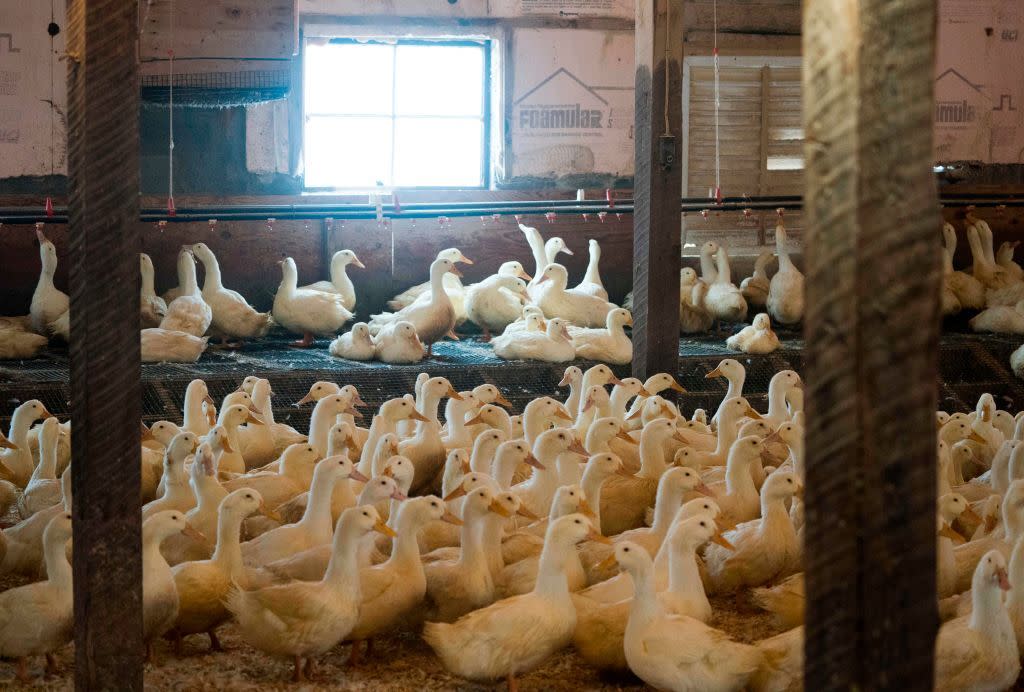
"The premise of this legislation that the process is inhumane is not supported by fact or research—NOT ONE Council member has made any effort to learn about this process and all have refused to visit the farms to understand the process first-hand," Daguin, whose annual foie gras sales to New York chefs amount to $15 million (about 10% of the business), said in a statement to Town & Country.
"A New York City foie gras ban will cost more than 400 immigrant workers their jobs and chance at the American dream," Daguin said. "If humane treatment is truly the issue here, we should be looking at factory-farm practices first before we shut down small farms."
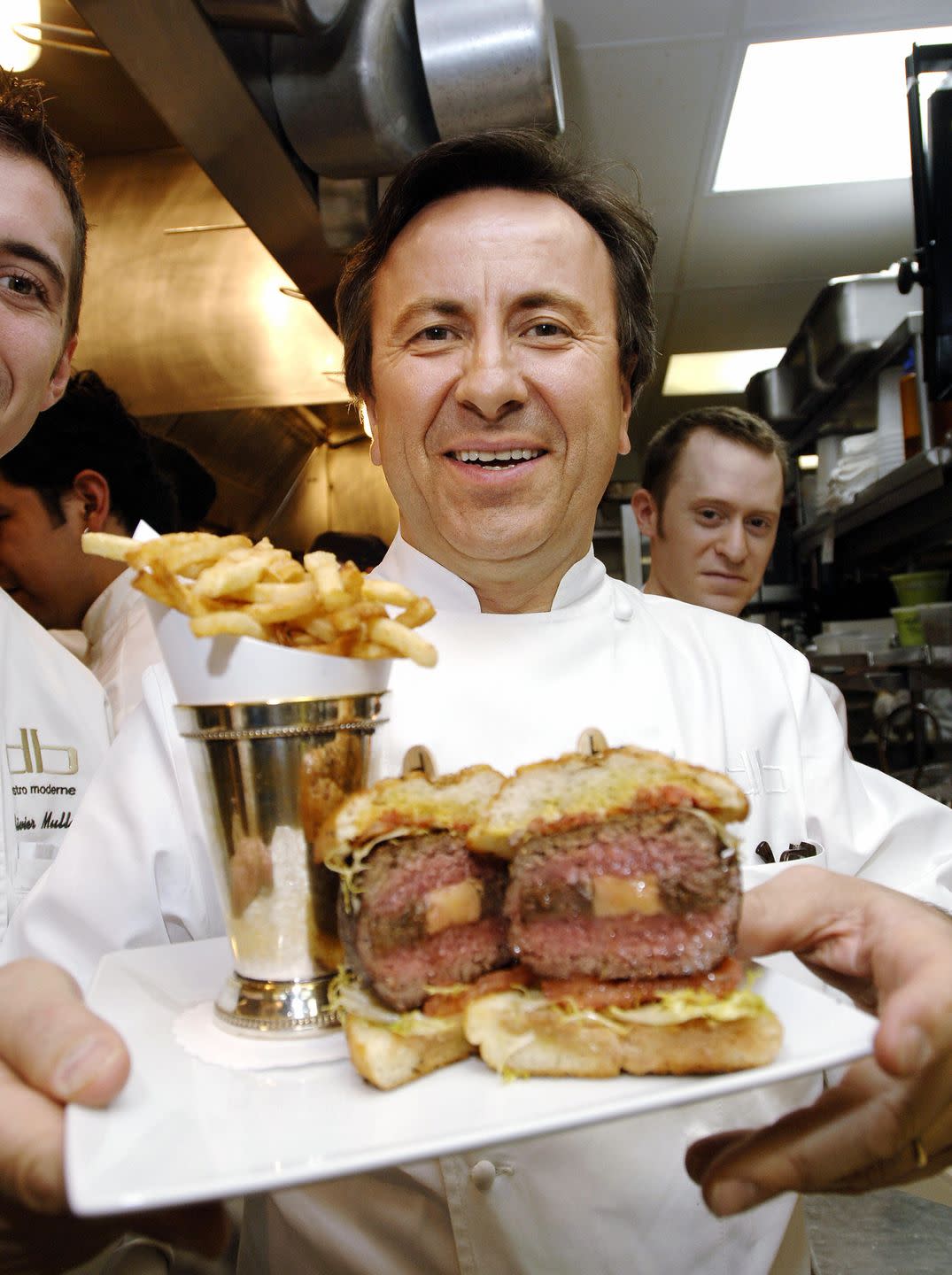
John Winterman, a co-owner of Bâtard in Tribeca, who is opening a brasserie tentatively named Francie in Williamsburg next year, says the foie gras debate is "a continuing battle because it's a misunderstood product."
"A lot of the weapons the anti-foie gras groups use are outdated videos, and that's not the way things are done, especially at a lot of the farms in this country," Winterman said. "If the farms were really treating their animals poorly, they wouldn't be in business because it's important for chefs to be ethical."
Le Coucou's chef and partner Daniel Rose agrees. "I love foie gras," Rose told T&C. "At the same time, I believe that using it requires some understanding of where it comes from, how it is made, and that there should absolutely be some minimum quality involved in its production—as there should be for all food. The free market will inevitably try to produce everything for less and whether it is vitamins or ducks, something will suffer on the way if left to the pressure of the market to produce less expensive food."
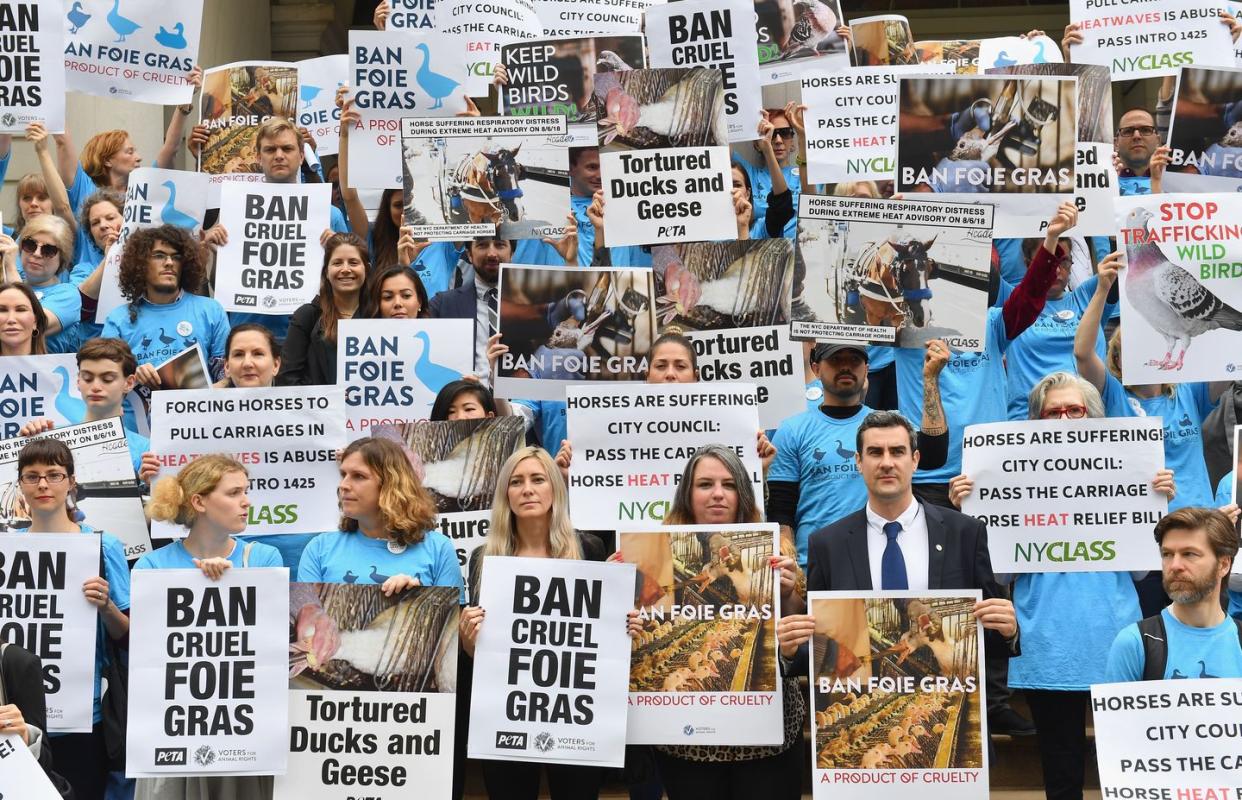
"Can we say that feeding people high-fructose corn syrup, food dyes, excessive amounts of salt, pesticides, or other additives causes less suffering than the production of foie gras?," he asked rhetorically. "What about the production of low cost chickens and other animals? I don’t know, but I don’t think we have asked all of the meaningful questions and considered enough opinions to start banning individual food items without core principals and processes guiding our decisions."
Rose said that "if banning foie gras in New York generates a conversation about the state of food in America and the treatment of animals in general then I’m all for it." He will have to change some of his menu at Le Coucou when the ban takes effect but added that "there is certainly enough depth in the French repertoire to cook without it."
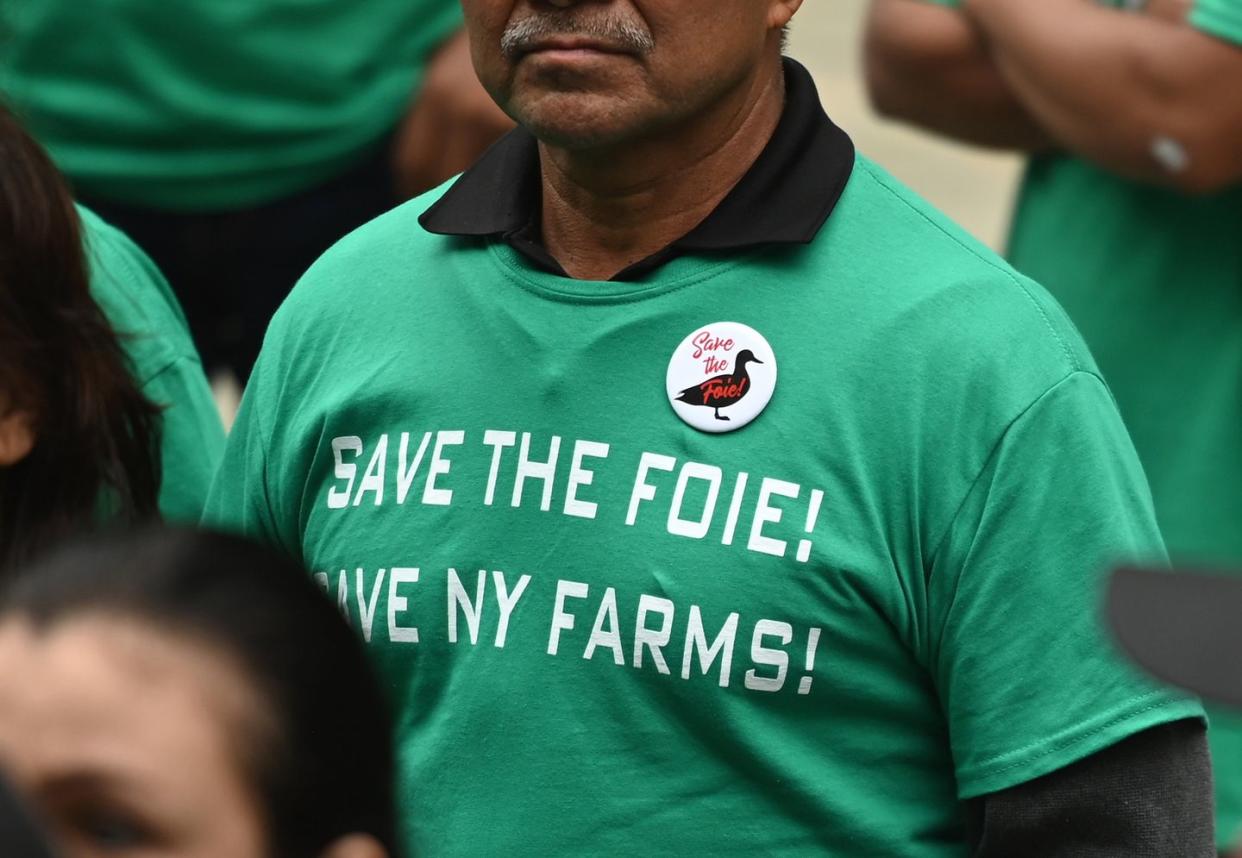
Other chefs were more vocal in their opposition.
"This is idiocracy," Momofuku chef David Chang tweeted. "Stupid short sighted and a misunderstanding of the situation."
This is Idiocracy...fucking fuck https://t.co/DUwl2a7hHw
— david chang (@davidchang) October 30, 2019
Ken Oringer, a James Beard Award-winning chef and co-owner at Toro in Manhattan, called the ban "ridiculous." Oringer told the Associated Press that he had been to the farms in upstate New York that produce foie gras "and they operate with the utmost integrity to their farm animals."
"Food choice is everything and the beauty of our country is that we can make the choice to eat what we want to eat," Oringer added.
Other cities and states have passed—and repealed—similar legislation. In 2006, Chicago became the first American city to pass a foie gras ban. Two years later, the city's mayor, Richard M. Daley, called it the "silliest" law the city had ever passed and successfully led an effort to have the ban overturned.
California banned foie gras in 2012. It was overturned in 2015 but a federal appeals court reinstated it in 2017. This past January, the Supreme Court declined to hear a challenge, allowing the prohibition to take effect.
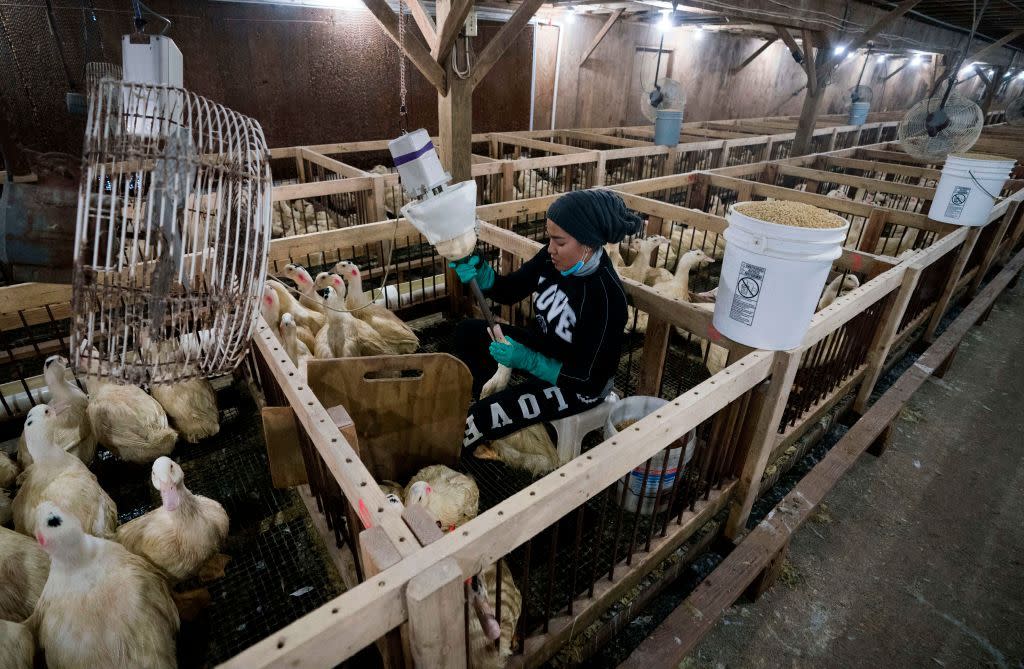
Perhaps the legislative turmoil is a sign of what's to come in New York. Winterman, for one, is not convinced the ban will take effect. "A lot can happen in three years," he said. He plans to include foie gras on his new restaurant's menu.
You Might Also Like
